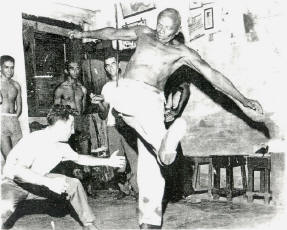 An English teacher must also be part performer, part artist, and part comedian.
An English teacher must also be part performer, part artist, and part comedian.
Why?
Because you have to win your audience.
Once in a blue moon you’ll have a student who comes to class enthusiastic and ready to jump into the lesson with both feet – but this is the exception. Most students enter the classroom tired, having just worked a full day, and “cold,” meaning they haven’t used English at all since the last class.
This means you can’t just go in and say, “Open your books to page 42 and do exercise 1.” If you do, your whole class will drag and the students will check their watches every ten minutes. Instead, you have to warm them up… establish a connection… create that “chemistry” that’ll get everyone interacting and actively participating.
How?
The Prime Directive: The first activity of the class must be receptive before productive.
In other words, you need to give the students something before you ask them to produce anything.
BAD EXAMPLE
In a lesson about news, my opening question was, “What are some things that are happening in the news recently?” I figured most students could name at least one topic. Arab Spring, financial crisis, World Cup 2014, anything!
But it went over like a lead balloon. My normally talkative students stared at me blankly. Nobody even ventured an, “I don’t know, I haven’t seen the news lately.” Nothing.
GOOD EXAMPLE
This week I taught a lesson on product failures and equipment breakdown (such an inspiring topic).
Before class started, I had drawn this on the board:
 I asked the students if the computer in the picture is “break,” “broked,” or “broken.” (They debated between “broked” and “broken” and eventually chose the latter.) Then I told them, somewhat theatrically, about a time when I was installing some software and the computer crashed when the installation was 99% complete. Finally, I pointed to the picture and asked, “Has something like this ever happened to you?”
I asked the students if the computer in the picture is “break,” “broked,” or “broken.” (They debated between “broked” and “broken” and eventually chose the latter.) Then I told them, somewhat theatrically, about a time when I was installing some software and the computer crashed when the installation was 99% complete. Finally, I pointed to the picture and asked, “Has something like this ever happened to you?”
Result: They ALL started talking about their own tales of computer woes.
Once I’d won them over, they stayed with me throughout the rest of the class. They spoke more, they asked more questions, they even tackled the book’s boring vocabulary exercises with energy and enthusiasm.
When class was over, I was extremely tempted to take a bow!


